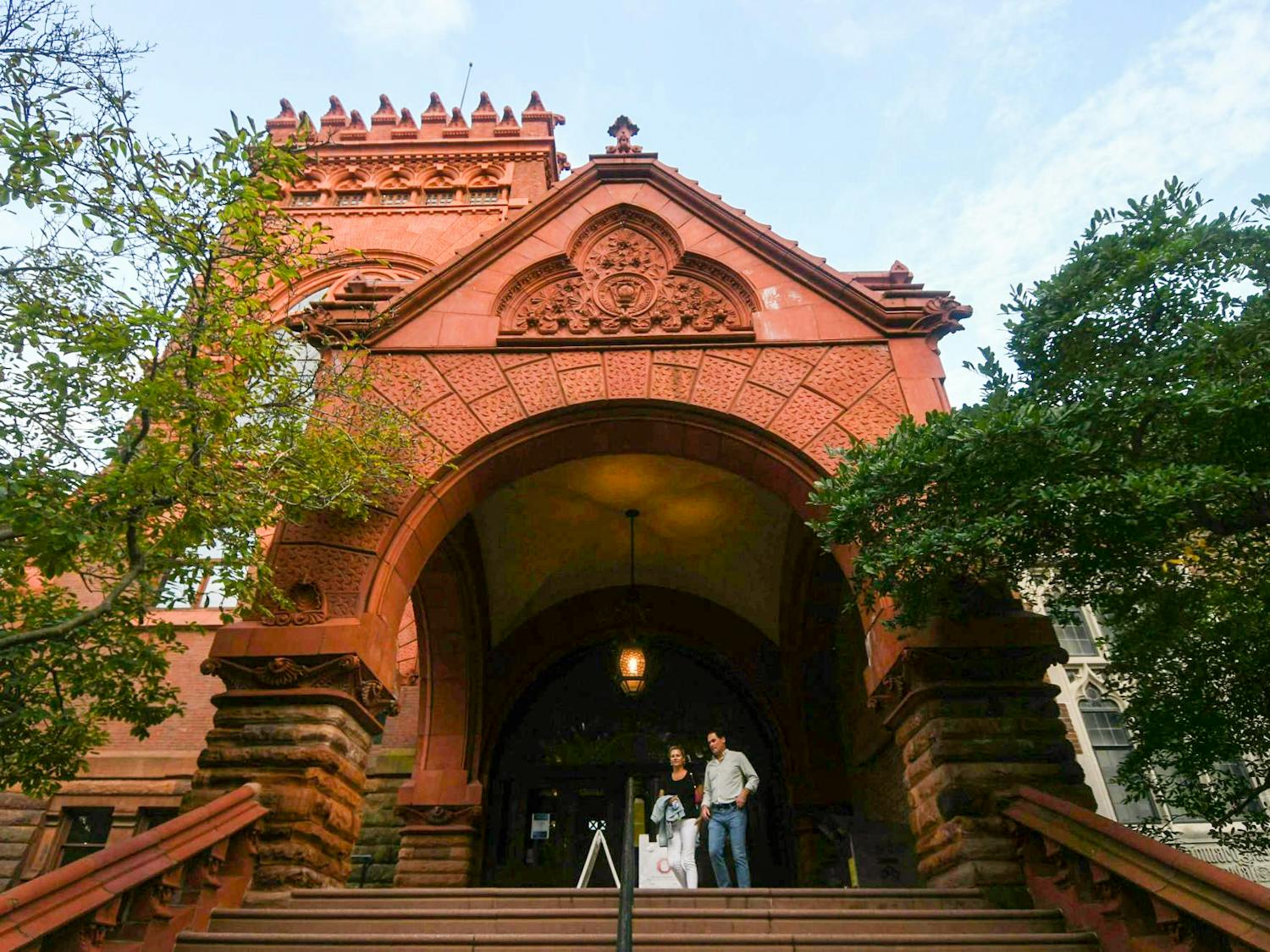Some bioethics experts are criticizing Penn’s dismissal of the research misconduct charges levied by a psychiatry professor against two of his colleagues in the department.
Last July, professor Jay Amsterdam alleged that a paper published in 2001 under the names of Psychiatry Department Chair Dwight Evans, professor Laszlo Gyulai and three researchers unaffiliated with Penn had actually been ghostwritten by a company hired by the manufacturer of the drug that the paper was examining.
A faculty inquiry committee convened by the Perelman School of Medicine concluded that “there was no plagiarism and no merit to the allegations of research misconduct,” according to a statement released earlier this month.
“While current Perelman School of Medicine policy and journal practice call for acknowledgment of the assistance of a medical writer,” the statement read, “the committee concluded that guidelines in place in 2001 did not.”
The University currently forbids medical ghostwriting, considering it to be the equivalent of plagiarism.
Evans expressed his approval of the committee’s conclusions.
“After a thorough review, the inquiry committee concluded that each and every allegation lacked substance and credibility,” he wrote in a statement. “The committee found that all criteria for authorship were met and that the complaint of research misconduct was without merit.”
But some bioethics experts from outside the Penn community found the inquiry committee’s argument lacking.
“The conclusion they came to was wrong,” said Georgetown University professor of pharmacology Adriane Fugh-Berman, who studies pharmaceutical marketing practices and the culture of medicine. She referred to the verdict as a “cop-out.”
“There may have been other things that [the researchers] could have been sanctioned under,” she said. “It’s not enough to do the research. You have to write it up.”
Eric Campbell, a professor of medicine at Harvard Medical School who studies physician conflict of interest, said it “seems very disingenuous” to dismiss the charges of ghostwriting simply because there were no official rules at the time.
“People in academics know it’s not okay,” he said. “Do you think a student would have been let off? If students know, faculty should know … It’s against the basic tenets of science.”
Campbell said Penn’s failure to reprimand Evans and Gyulai sends a message that “if you’re a very senior member of a faculty, the rules don’t apply to you.”
Fugh-Berman, too, said the conclusion of the inquiry committee speaks to the larger academic culture in which “universities are loath to accuse their own faculty.”
“It’s too bad that Penn didn’t take a stronger stance,” she said.
For the inquiry committee to have found research misconduct on the part of Evans and Gyulai, it would have had to satisfy three requirements — a “significant departure from accepted practices,” intentional or reckless misconduct and a preponderance of evidence, according to the University’s Procedures Regarding Misconduct in Research published in 2003.
Medical School spokesperson Susan Phillips defended the inquiry committee’s conclusion, writing in an email that “the review clearly concluded that this was not a case of ghostwriting or plagiarism.”
“It’s important to note that this was not a case in which a drug company conducted a study and then asked a university professor to put his name on the paper and claim it was his or hers,” she wrote. “Doctors Evans and Gyulai were legitimate authors of the publication who met all the authorship criteria, i.e., they collected data, participated in the data analysis and contributed to the writing of the paper as co-authors. Any other conclusion fails to meet a factual test.”
The inquiry committee also found that Amsterdam, who had claimed that he should have been listed as an author of the paper, “did not meet with the journal’s guidelines for authorship.”
Amsterdam’s lawyer, Bijan Esfandiari, plans to submit a point-by-point response to the University’s conclusions to the Office of Research Integrity, which is in the midst of its own investigation into Amsterdam’s allegations, and a United States Senate Committee that is currently investigating medical ghostwriting.
“How can you say that, in 2001, it was okay to plagiarize?” Esfandiari said. “You don’t have to have it in a written rule.”
In 2010, Evans was accused of research misconduct by government watchdog group Project on Government Oversight.
“While we support any effort to promote scientific integrity, we believe that the allegations of ghostwriting made by POGO … are unfounded,” Phillips wrote in an e-mail at the time.
POGO has also criticized Penn President Amy Gutmann’s handling of these allegations on campus. Last year, it called for her removal from her position as chair of Barack Obama’s Presidential Commission for the Study of Bioethical Issues.
“We do not understand how Dr. Gutmann can be a credible Chair of the Commission when she seems to ignore bioethical problems on her own campus,” Danielle Brian, POGO’s executive director, wrote in a letter to Obama.
Gutmann has not been removed and was, in fact, reappointed as chair last month.








